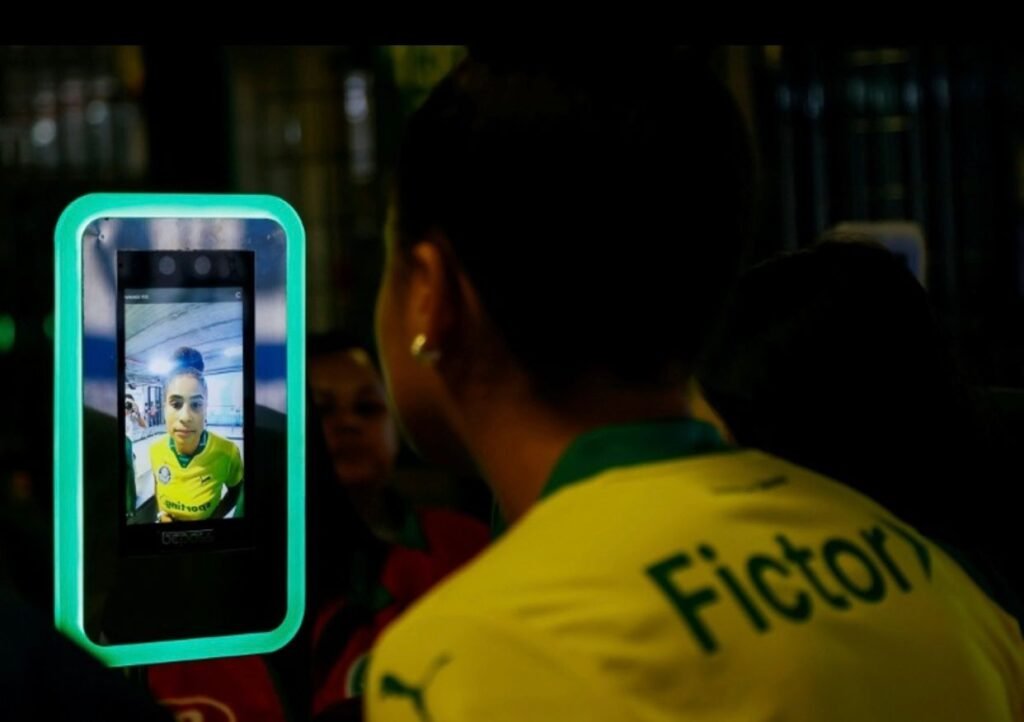
Football in Brazil is not just a sport — it is part of the country’s identity. Every weekend, stadiums fill with thousands of passionate fans, wearing their team’s colors, chanting songs, and celebrating victories. Yet, alongside this excitement, there has long been a darker side: violence among fans, fights outside and inside stadiums, and even serious clashes that sometimes make national headlines. To tackle this, Brazilian football clubs are introducing advanced scanning technologies to monitor every fan entering the stadium, aiming to make matches safer for everyone.
The system is simple in concept but highly effective. When fans purchase tickets, their personal information — sometimes including photographs or biometric details like fingerprints — is securely stored in a digital database. On the day of the match, cameras and scanners at stadium entrances quickly check each fan’s identity, comparing it to the registered information. Anyone on a banned list or flagged for past violent behavior is immediately denied access, while legitimate supporters can enter quickly and safely. This approach has helped reduce chaos at entrances and ensures that stadiums remain controlled environments even during highly charged matches.
One of the biggest advantages of this system is the prevention of violence before it starts. Brazilian football has a history of fan clashes that can escalate into dangerous riots. By knowing exactly who is trying to enter the stadium, clubs can prevent troublemakers from even getting close. Repeat offenders who have caused problems in the past are easily identified, and security teams can intervene before any incident occurs. Additionally, the system combats fake ticket sales, ensuring that only genuine ticket holders gain access, which also protects fans from scams and overcrowding.
Early results from clubs that have adopted fan scanning are encouraging. Stadiums report fewer incidents of fights and disturbances, and law enforcement finds it easier to track individuals involved in previous offenses. Fans have expressed a sense of relief, knowing that the stadium has strong security measures in place. Families attending matches with children feel more comfortable, and players can focus on the game without worrying about external threats or disruptions.
However, there are challenges to this approach. Privacy concerns are significant, as collecting biometric data can make some fans uneasy. People worry about how their personal information is stored, who has access, and whether it could be misused. Technical limitations are also present — facial recognition technology, while advanced, is not always 100% accurate. Occasionally, genuine fans may be mistakenly denied entry, or banned individuals might be misidentified. Furthermore, installing and maintaining these high-tech scanning systems can be expensive, which may prevent smaller clubs from fully implementing them.
Despite these challenges, Brazilian clubs believe that scanning every fan is an important step toward creating safer football environments. The combination of technology, stricter club policies, and support from local law enforcement is gradually transforming stadiums into spaces where the focus is on football, celebration, and community rather than conflict. As more clubs adopt these systems, the hope is that stadium violence will decrease significantly, providing a model for other countries struggling with similar issues.
Ultimately, the use of fan scanning in Brazilian football is more than a technological solution — it is a commitment to the fans, the players, and the sport itself. By proactively managing access and ensuring that stadiums remain secure, clubs are taking responsibility for the well-being of everyone involved. Football can once again be enjoyed as it was meant to be: a sport that unites people, inspires passion, and creates unforgettable moments — without fear or violence overshadowing the experience.

